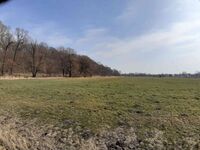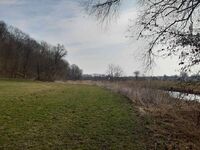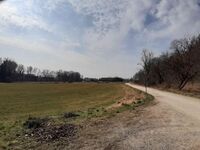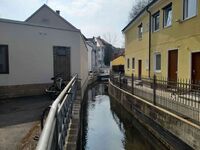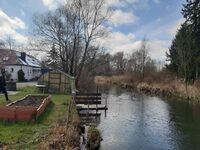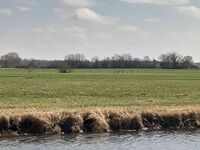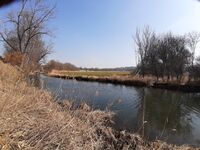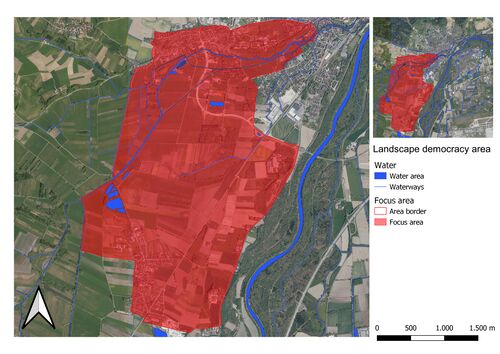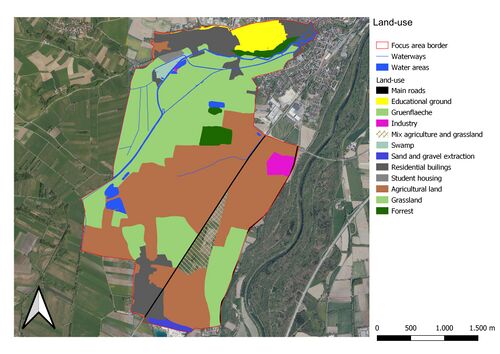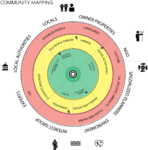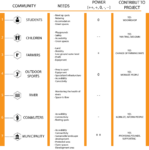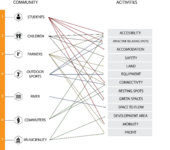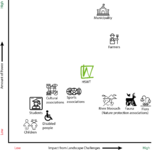Freising-Moosach Landscape Democracy 2022 Team 2: Difference between revisions
No edit summary |
|||
| Line 101: | Line 101: | ||
== ''Your Name'' and title of your personal analysis == | == ''Your Name'' and title of your personal analysis == | ||
<gallery | <gallery widths="200" heights="150" perrow="2"> | ||
File: | File:Index.php?title=File:Addyouruniqueimagename.jpg|''insert text here'' | ||
File: | File:Index.php?title=File:Addyouruniqueimagename.jpg|''insert text here'' | ||
File:Freising C.mp4|alt=The voice of the Nature should be heard by humans.|Niusha Vedadi Moghadam | |||
</gallery> | </gallery> | ||
Revision as of 18:04, 9 May 2022
>>>back to working groups overview
For help with editing this Wiki page use this link.
For more details on assignments and key readings please use this link.
| Area | Freisinger Moos | |
| Place | Freising | |
| Country | Deutschland | |
| Topics | Landscape Democracy | |
| Author(s) | Vulnet Abazi, Boglárka Bartus, Brent van der Brug, Dino Jozic and Niusha Vedadi Moghadam | |

| ||
Landscape Democracy Rationale
- Why do you think this case is relevant? What is your hypothesis considering the landscape challenges?
- The Freisinger Moos area is located to the south-west of Freising. It is an area with both nature and agriculture.
- Landscape challenges:
- CO₂ neutral future
- Flood prevention
- Future self-sufficient community
- Urban growth
- Biotope enrichment
- How do we give nature and the river a voice?
Location and Scope
- You can edit this map with the map editor
Phase A: Mapping Your Community
Welcome to Your Community and Their Landscape
Groups of Actors and Stakeholders in Your Community
- There are a lot of groups within our focus area. These groups can be seen in the community grouping circle. This also shows how close these are connected with the river Moosach.
- From the community grouping circle we picked a few groups to focus on.
Relationships Between Your Actors and Groups
- The groups we would like to work with, each have their own needs. The first image shows how the needs of these groups intersect with eachother.
- The power mapping graph shows the amount of power each group from within the focus area has. Besides this it also shows how much effect the landscape challenges have on these groups.
Summary of Your Learnings from the Transnational Discussion Panel
- insert text here
Theory Reflection
- For Landscape Democracy to achieve its full potential, education must be re-envisioned to offer future design and planning professionals to test their skills in recognizing challenges, opportunities and ethically and responsibly intervene to shape a socially sustainable.
- Didactic Formats fostering the development of competencies and transformative learning. The experimental character of projects allows for making mistakes. (within the protected space of the university) as an essential part in the process of learning.
- For Landscape Democracy to achieve its full potential, education must be re-envisioned to offer future design and planning professionals to test their skills in recognizing challenges, opportunities and ethically and responsibly intervene to shape a socially sustainable.
References
Landscape Education for Democracy – Volume 10
Pledge for a Transformative Science, 2.2.2
Phase B: Democratic Landscape Analysis and Assessment
Your Name and title of your personal analysis
- Index.php?title=File:Addyouruniqueimagename.jpg
insert text here
- Index.php?title=File:Addyouruniqueimagename.jpg
insert text here
Niusha Vedadi Moghadam
Your Name and title of your personal analysis
- Addyouruniqueimagename.jpg
insert text here
- Addyouruniqueimagename.jpg
insert text here
Your Name and title of your personal analysis
- Addyouruniqueimagename.jpg
insert text here
- Addyouruniqueimagename.jpg
insert text here
Your Name and title of your personal analysis
- Addyouruniqueimagename.jpg
insert text here
- Addyouruniqueimagename.jpg
insert text here
Your Name and title of your personal analysis
- Addyouruniqueimagename.jpg
insert text here
- Addyouruniqueimagename.jpg
insert text here
Phase C: Collaborative Visioning and Goal Setting
The Scene in Your Story of Visioning
- insert text here
- Addyouruniqueimagename.jpg
insert text here
- Addyouruniqueimagename.jpg
insert text here
- Addyouruniqueimagename.jpg
insert text here
The Actors in Your Story of Visioning
- insert text here
- Addyouruniqueimagename.jpg
insert text here
- Addyouruniqueimagename.jpg
insert text here
- Addyouruniqueimagename.jpg
insert text here
The Story of Visioning
- insert text here
- Addyouruniqueimagename.jpg
insert text here
- Addyouruniqueimagename.jpg
insert text here
- Addyouruniqueimagename.jpg
insert text here
Reflect on Your Story of Visioning
- insert text here
- Addyouruniqueimagename.jpg
insert text here
- Addyouruniqueimagename.jpg
insert text here
- Addyouruniqueimagename.jpg
insert text here
Phase D: Collaborative Design, Transformation and Planning
Your Prototyping Action
- insert text here
- Addyouruniqueimagename.jpg
insert text here
- Addyouruniqueimagename.jpg
insert text here
- Addyouruniqueimagename.jpg
insert text here
The Evolution of Your Prototyping Action
- insert text here
- Addyouruniqueimagename.jpg
insert text here
- Addyouruniqueimagename.jpg
insert text here
- Addyouruniqueimagename.jpg
insert text here
The Plan Behind Your Prototyping Action
- insert text here
- Addyouruniqueimagename.jpg
insert text here
- Addyouruniqueimagename.jpg
insert text here
- Addyouruniqueimagename.jpg
insert text here
The Realization of Your Prototyping Action
- insert text here
- Addyouruniqueimagename.jpg
insert text here
- Addyouruniqueimagename.jpg
insert text here
- Addyouruniqueimagename.jpg
insert text here
Reflect on Your Prototyping Action
- insert text here
- Addyouruniqueimagename.jpg
insert text here
- Addyouruniqueimagename.jpg
insert text here
- Addyouruniqueimagename.jpg
insert text here
Phase E: Collaborative Evaluation and Future Agendas
Collaborative Evaluation and Landscape Democracy Reflection
- insert text here
- Addyouruniqueimagename.jpg
insert text here
- Addyouruniqueimagename.jpg
insert text here
- Addyouruniqueimagename.jpg
insert text here
The Actors in your Collaborative Evaluation
- insert text here
- Addyouruniqueimagename.jpg
insert text here
- Addyouruniqueimagename.jpg
insert text here
- Addyouruniqueimagename.jpg
insert text here
Reflection on the Online Seminar
- insert text here
- Addyouruniqueimagename.jpg
insert text here
- Addyouruniqueimagename.jpg
insert text here
- Addyouruniqueimagename.jpg
insert text here
Reflection on your Living Lab Process
- insert text here
- Addyouruniqueimagename.jpg
insert text here
- Addyouruniqueimagename.jpg
insert text here
- Addyouruniqueimagename.jpg
insert text here
Your Living Lab Code of Conduct
- insert text here
- Addyouruniqueimagename.jpg
insert text here
- Addyouruniqueimagename.jpg
insert text here
- Addyouruniqueimagename.jpg
insert text here
Process Reflection
- insert text here
